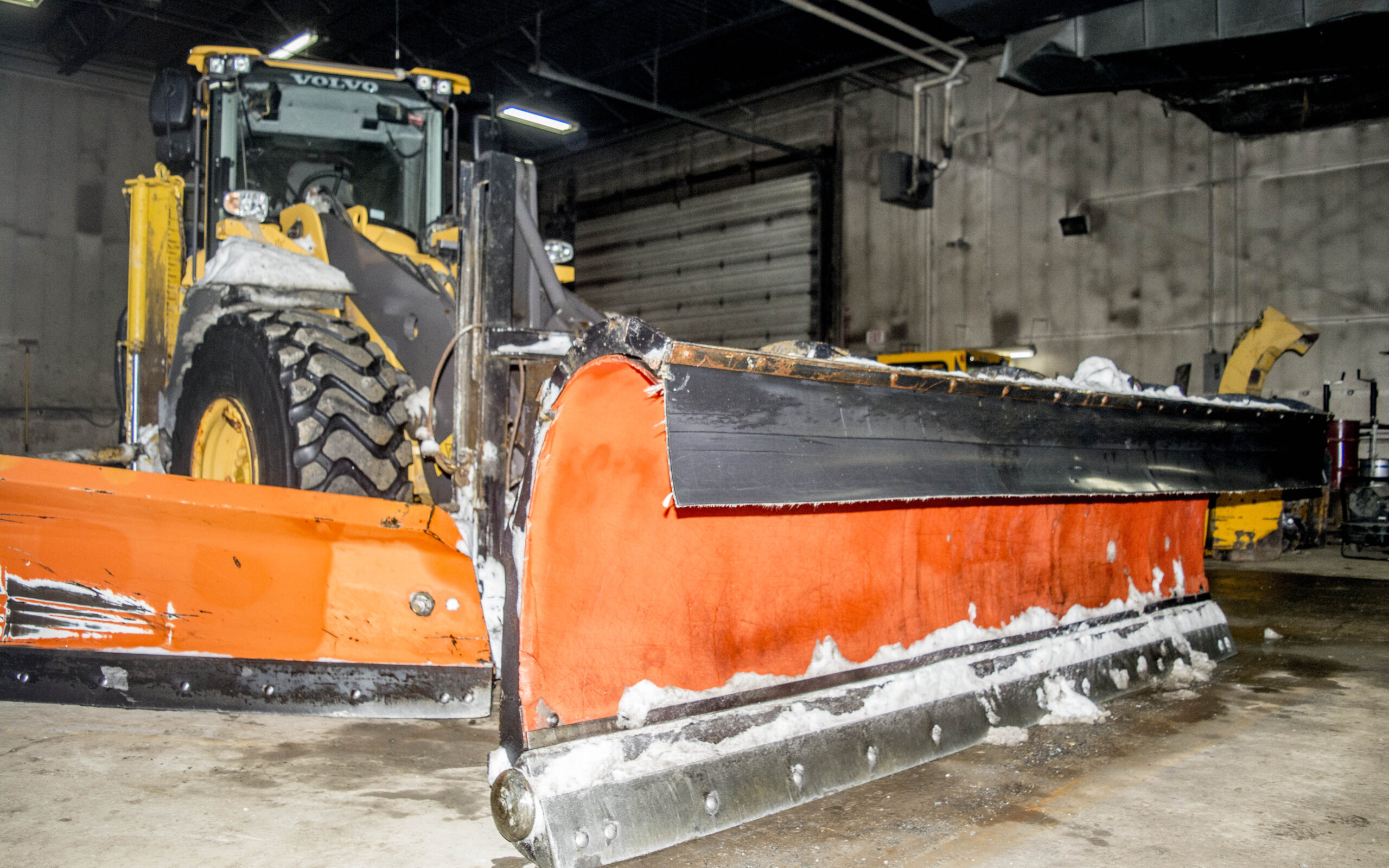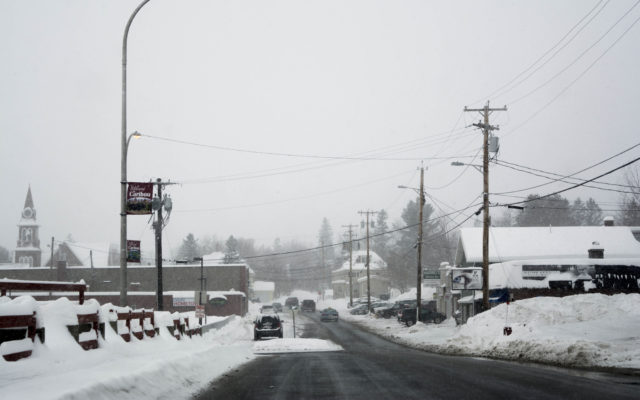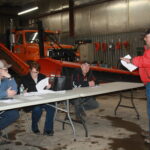
CARIBOU, Maine — Much of Aroostook County experienced a marathon of snowfall last week and, in Caribou, this meant a short-staffed public works crew had to work roughly 35 hours of overtime in order to ensure that motorists could safely travel through the city.
Public Works Director Dave Ouellette said he set his alarm for 12:30 a.m. on Wednesday in anticipation of a few inches of snow that morning.
“It started with sleet and freezing rain, which gets slippery pretty quick,” he said.
He called in the crew at 3:30 a.m. and, by 10:30 that morning they had taken care of most of the first wave of snow. The worst had yet to come, however, as the National Weather Service forecast another 8 to 9 inches for that afternoon.
“It started snowing pretty hard around 3 p.m., almost an inch and a half an hour for the first two hours, and 5 p.m. is the worst possible time to clear snow because of the high traffic,” Ouellette said.
While the crew typically consists of 15 full time employees and one seasonal staffer who helps during the winter months, Caribou’s highway department is currently down one full time employee and another had to leave at 9 p.m. Wednesday to go to the emergency room for a medical issue unrelated to road maintenance.
The remaining crew continued on through the night, and finished the bulk of the work at roughly 5 a.m. on Thursday morning.
“Mother nature is strong,” said Ouellette. “It was slippery and the roads had a lot of snow on them, no question, but we finished the bulk of the night, the heaviest part of the storm, while we were down two men.”
Altogether, the department has six dual axle trucks and two single axle trucks, with the latter being used to clear out busier city streets and the six other vehicles being used throughout the city and in Connor Township.
Ouellette said that, when plowing, mileage is explained either as centerline miles or lane miles, with centerline measuring the actual distance of the road and lane miles being double that number, as it takes into consideration that plows need to pass through both lanes of a road in order to push the snow to the right side.
In terms of lane miles, the department covers 24 miles in Connor Township and just over 300 in Caribou, according to Ouellette. He added that lane miles do not account for roads with two lanes heading in one direction, even though they do make two passes on these roadways.
“It makes for a lot of work,” he said. “The plows are only traveling 20 to 23 miles per hour, and you’re constantly watching for traffic because if a car sneaks in close enough behind you, you won’t be able to see them when you back up to turn a corner, and could back up over the vehicle.”
Plowing is only half the battle, according to Ouellette, who said that applying sand and salt to the roads is an essential measure that can dramatically reduce the number of vehicles spinning off the roadway. The city spends roughly $42,000 for 4,500 yards of sand and $175,000 for between 1,800 and 2,000 yards of salt annually.
“We use pure salt downtown,” he said, “and who’s to say what it really costs you in the long run? Would you want your daughter, mother, or father to get into an accident because Caribou wanted to save $200 on salt?”
He said the most recent storm was “right up there with the top of the challenges,” and that 20-24 mile per hour winds made the work even more difficult.
Ultimately, Ouellette’s major concerns are his employees and the safety of motorists driving through the city.
“I don’t know that anybody should work 30 hours straight or even 20,” he said, “but we constantly pull 24 hour shifts and even 30 hours a fair amount.”
He said the long hours put him, as director, in a predicament, as it may be nice to send the crew home after 10 hours of work, but “what happens if the wind blows and blocks off a road, and the fire department can’t get through to a burning house, or what if a little old lady has a heart attack and the ambulance can’t get there?”
Ouellette said there are no laws limiting the Caribou Public Works department to work only 12 hours a day as the crew’s efforts help ensure the safety of local motorists. While he and his crew do take breaks, they are rarely long enough to get much, if any, amount of sleep, especially during a long and intense period of snowfall.
“There’s barely time for supper breaks,” he said.
But he said that waiting to tackle snow or going home on a night when even a small amount of snow is predicted could lead to a road getting plugged and snow hardening to the point where the plows can’t move it.
“If I have to send a different piece of machinery out to snowblow a road,” he said, “it’s likely going to be plugged for a day or two, and I would’ve been better off just staying here and dealing with it before that happened.”
- The Caribou Public Works Department uses several tons of salt annually on the busier roads in the city, such as Herschel Street, pictured here on Jan. 10. (Chris Bouchard)








